Rules for Recovery of Expenses for Professional Legal Aid Reminded by the Supreme Court
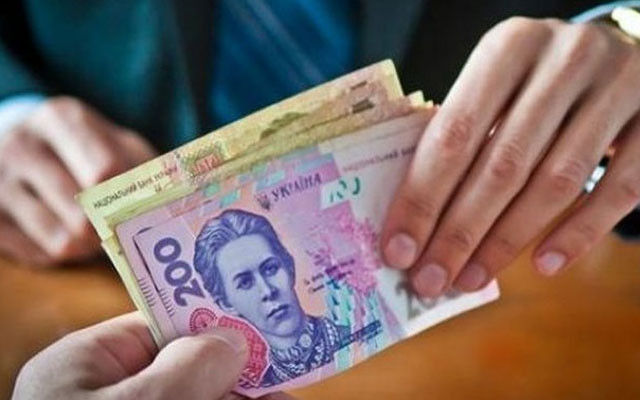
The tax authorities lost a dispute initiated by a company to invalidate and cancel tax assessment notices. At the same time, the court recovered from the defendant the costs of professional legal assistance. The government agency appealed these decisions to the cassation instance.
The Administrative Court of Cassation of the Supreme Court assessed the tax authority's assertion that the plaintiff's claim for professional legal aid costs was groundless. The resolution of the Cassation Administrative Court of the Supreme Court dated 29.08.2024 in case No. 560/10132/21 was published in the Unified State Register of Court Decisions.
The high judges proceeded from the fact that, in accordance with Article 16 of the Code of Administrative Procedure, the parties to the case have the right to use legal aid. Representation in court, as a type of legal aid, is carried out exclusively by a lawyer (professional legal aid), except in cases established by law.
According to Article 139(1) of the Code of Administrative Procedure, when a party other than a public authority is successful in its claim, all court costs to be reimbursed or paid are recovered from the budgetary allocations of the public authority that was the defendant in the case, or if its official or employee was the defendant in the case.
According to Art. 132 of the CAP, court costs consist of a court fee and expenses related to the case. The costs associated with the case include, in particular, the costs of professional legal assistance.
The Supreme Court also referred to the decision of the Constitutional Court of 30.09.2009 No. 23-rp/2009 in the case of the right to legal aid. In it, the constitutional body noted that legal aid is multidimensional, different in content, scope, and forms, and may include consultations, explanations, drafting claims and appeals, certificates, statements, complaints, representation, including in courts and other state bodies, etc. The choice of the form and subject of such assistance depends on the will of the person who wishes to receive it. The right to legal aid is the state-guaranteed opportunity for every person to receive such assistance in the amount and forms determined by the state, regardless of the nature of the person's legal relations with other subjects of law.
As for the costs associated with the legal assistance of a lawyer, according to Article 134 of the Code of Administrative Procedure, they are borne by the parties, except in cases where legal assistance is provided by the state. Based on the results of the case, the costs of legal assistance of a lawyer are to be distributed between the parties along with other court costs, except for the costs of a public authority for legal assistance of a lawyer.
For the purposes of allocating court costs:
1) the amount of expenses for the advocate's legal aid, including the advocate's fee for representation in court and other legal aid related to the case, including preparation for its consideration, collection of evidence, etc., as well as the cost of the services of the assistant advocate shall be determined in accordance with the terms of the agreement for provision of legal aid and on the basis of evidence regarding the scope of services and work performed and their cost paid or payable by the relevant party or third party;
2) the amount to be paid as reimbursement of the advocate's expenses necessary for the provision of legal aid shall be determined in accordance with the terms of the agreement for provision of legal aid on the basis of evidence confirming the relevant expenses.
In order to determine the amount of legal aid expenses and for the purpose of allocating court costs, a party to the case shall submit a detailed description of the work (services) performed by the attorney and the expenses incurred by him/her necessary to provide legal aid.
The Supreme Court also reminded the rules for calculating the amount of expenses for attorney's fees. This amount should be commensurate with:
1) the complexity of the case and the work performed by the attorney (services rendered);
2) the time spent by the advocate to perform the relevant work (services);
3) the scope of services rendered by the advocate and work performed;
4) the price of the claim and (or) the importance of the case for the party, including the impact of the case resolution on the reputation of the party or public interest in the case.
The burden of proving the disproportionality of the costs is on the party filing a motion to reduce the costs of legal aid to be shared between the parties.
According to parts seven and nine of Article 139 of the CAP, the amount of expenses that a party has paid or must pay in connection with the proceedings is determined by the court on the basis of evidence submitted by the parties (contracts, invoices, etc.). Such evidence shall be submitted before the end of the court hearings in the case or within five days after the court decision is made, provided that the party has made a statement to this effect before the end of the court hearings. In the absence of such a statement or failure to submit relevant evidence within the prescribed period, such a statement remains without consideration.
In addition, the high judges provided a list of aspects that the court should take into account when deciding on the allocation of court costs:
1) whether these costs are related to the case;
2) whether the amount of such costs is reasonable and proportionate to the subject matter of the dispute, the importance of the case for the parties, including whether the outcome of the case could affect the reputation of the party or whether the case was of public interest;
3) the behavior of a party during the proceedings, which led to a delay in the consideration of the case, in particular, the submission of manifestly unfounded statements and motions by a party, unreasonable assertion or denial by a party of certain circumstances relevant to the case, etc;
4) actions taken by a party to resolve a dispute out of court (in cases where out-of-court settlement is mandatory by law) and to settle a dispute amicably during the proceedings, the stage of the proceedings at which such actions were taken.
In addition, the Supreme Court referred to Article 30 of the Law «On the Bar and Practice of Law», according to which the fee is a form of remuneration for a lawyer for the defense, representation and provision of other types of legal assistance to a client. The procedure for calculating the fee (fixed amount, hourly payment), the grounds for changing the amount of the fee, the procedure for its payment, the terms of return, etc. are determined in the agreement for the provision of legal aid. When determining the amount of the fee, the complexity of the case, the advocate's qualifications and experience, the client's financial condition and other material circumstances shall be taken into account. The fee shall be reasonable and shall take into account the time spent by the advocate.
The panel of judges concludes that the analysis of the above legislative provisions gives grounds to conclude that documented court costs for professional legal assistance of an attorney related to the consideration of a case are subject to compensation to a party that is not a public authority and in whose favor a decision has been made, at the expense of the budgetary allocations of the public authority.
At the same time, the court is not obliged to award the party in whose favor the court decision was made all the costs of professional legal assistance incurred by it if, guided by the principles of justice and the rule of law, it determines that the amount of the fee determined by the party and its lawyer is excessive in relation to the other party to the dispute, taking into account such criteria as the complexity of the case, the time spent by the lawyer, the importance of the dispute for the party, etc.
In determining the amount of compensation for expenses incurred for professional legal assistance, it is necessary to examine, on the basis of appropriate and admissible evidence, the scope of services and work actually provided by the attorney, the amount of time spent, the amount of the fee, the proportionality of the services to the categories of complexity of the case, the time spent by the attorney, the scope of services provided, the price of the claim and/or the significance of the case.
Returning to the circumstances of case No. 560/10132/21, the Administrative Court of Cassation noted that the appeal, taking into account the complexity of the case and the work performed by the lawyer, the time spent by the lawyer on the provision of services, their scope, etc., concluded that there were grounds for compensation of the plaintiff's legal aid expenses in a certain amount.
Since the taxpayer did not dispute the amount of legal fees awarded in its favor, and the defendant did not provide proper justification for the disproportionality of these costs, the cassation court dismissed the tax authority's complaint.
Popular news
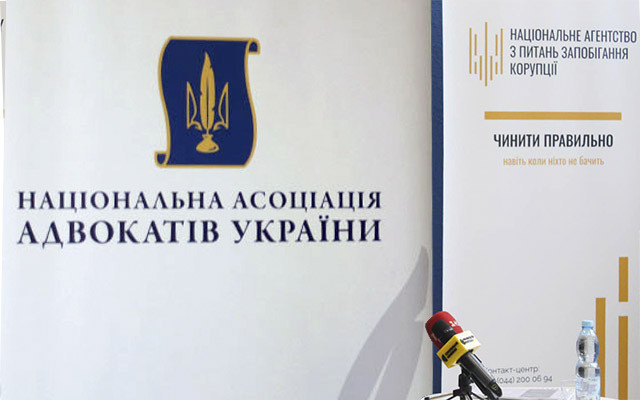
Self-government
BCU: NACP initiatives regarding advocacy are unconstitutional interference
The Bar Council of Ukraine has condemned the initiatives to reform the advocacy proposed by the National Agency for Corruption Prevention as direct, gross, and systematic interference by the executive branch in the activities of an independent constitutional institution.

Self-government
UNBA program for implementation of the Roadmap on the rule of law published
In order to ensure the implementation of measures set out in the Roadmap on the Rule of Law, the Bar Council of Ukraine approved a program for its implementation in relation to the reform of advocacy.
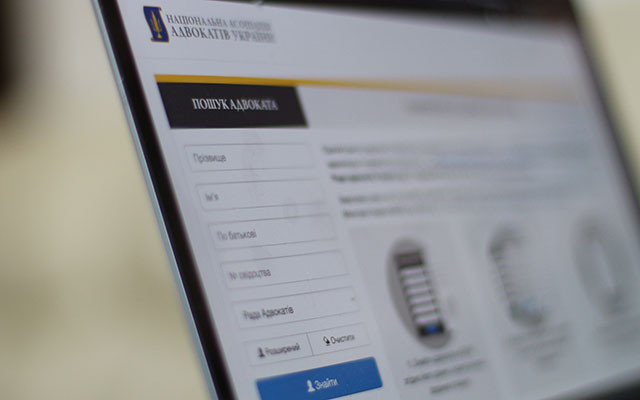
URAU
Access to advocate contacts in URAU has been restored
The Bar Council of Ukraine has opened up public access to data from the Unified Register of Advocates of Ukraine, which was closed at the start of the full-scale invasion in 2022. The decision was made at a meeting on December 12–13.
Self-government
Members of the QDCB are not required to submit declarations - BCU
Bar Council of Ukraine examined the legal status of members of bar self-government bodies and found that they are not required to submit declarations of persons authorized to perform functions of state or local self-government.
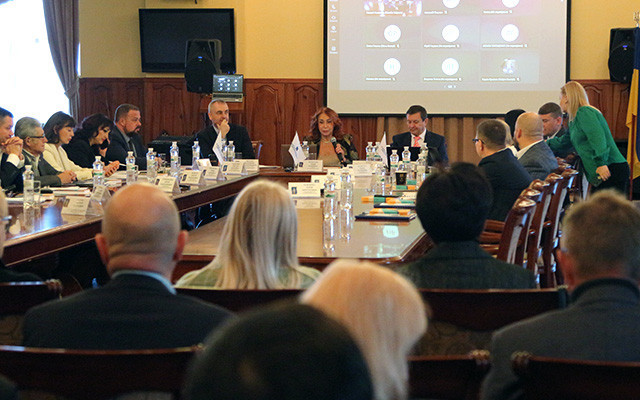
Self-government
BCU has identified 12 areas for implementing the Roadmap for advocacy
During its meeting on December 12, the Bar Council of Ukraine considered the Roadmap on the Rule of Law, approved by Order of the Cabinet of Ministers of Ukraine No. 475-r dated May 14, 2025. The document provides for the development and adoption of a draft law on improving the legal regulation of advocacy by the fourth quarter of 2026.
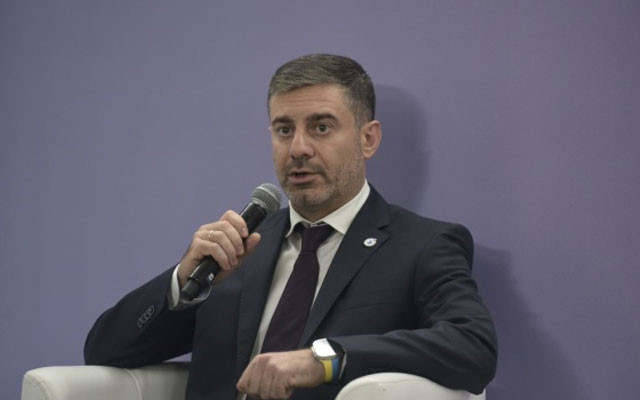
Guarantees of the practice of law
The Ombudsman acknowledged the problem of violation of the human right to legal aid in the TCC
The Verkhovna Rada Commissioner for human rights Dmytro Lubinets confirmed the existence of a problem with ensuring the constitutional right to professional legal assistance in territorial recruitment and social support centers.

Guarantees of the practice of law
The agreement on the provision of legal assistance is not public – BCU
Bar Council of Ukraine in its decision No. 111 dated October 18, 2025, responded to questions regarding the possibility of concluding legal assistance agreements by accepting a public offer, using an electronic form of the agreement, and posting information about legal assistance on websites.
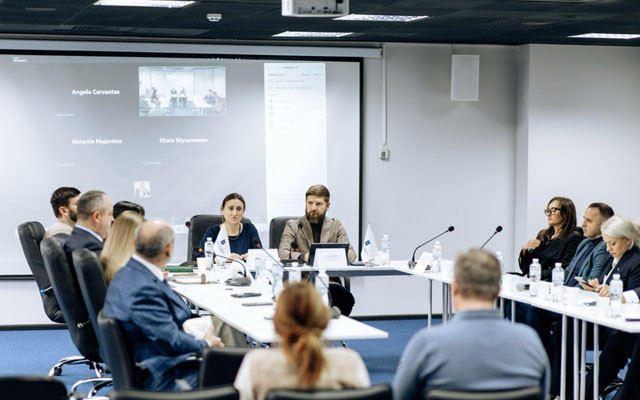
Discussion
Why preventive measures have turned into preventive punishment in Ukraine: round table discussion
The European approach, enshrined in the CPC, provides for detention as an exceptional preventive measure: courts must prove the impossibility of milder alternatives and carefully assess the risks. In practice, however, it is increasingly being applied almost automatically, eroding standards of freedom.
Publications

Censor.net Protecting advocates – protecting justice: addressing concerns about the new law

Ihor Kolesnykov A BRIEF SUMMARY REGARDING THE APPLICATION OF THE ORDER ON EXTENDED CONFISCATION IN LATVIA REGARDING FINANCIAL ASSETS OF…

Valentyn Gvozdiy WORKING IN A WAR ZONE

Lydia Izovitova Formula of perfection

Sergiy Vylkov Our judicial system is so built that courts do not trust advocates

Iryna Vasylyk Advocacy in the proclamation of Independence of Ukraine

Oleksandr DULSKY When we cross the border of the Supreme Anti-Corruption Court, we get into another department of the National Anti-Corruption…

Vadym Krasnyk The UNBA will work, and all obstacles and restrictions are only temporary inconveniences
